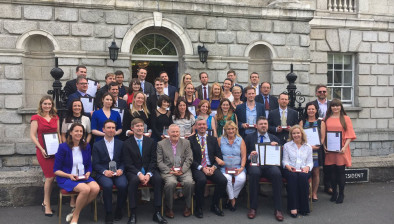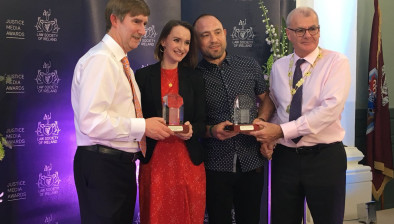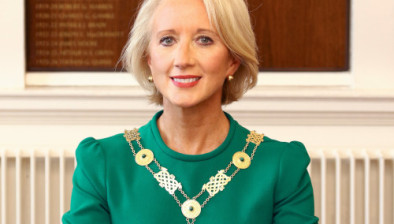Law Society criticises online EPA system with 2,000 registered in two years

Pictured: Mark Garrett, director general of the Law Society of Ireland.
The Law Society of Ireland has sharply criticised the “dysfunctional” online registration system for enduring powers of attorney (EPAs) after it emerged just 2,000 have been registered in the past two years.
The Decision Support Service (DSS), part of the Mental Health Commission, yesterday said that its online register now includes 3,000 decision support arrangements, including 2,000 EPAs.
However, the Law Society has highlighted a report previously published by the DSS in 2021 which stated that a “reasonable estimate for the first six months of operations would be 5,556 decision-support arrangements”.
The representative body for solicitors today said the underwhelming figures are a cause for concern rather than celebration.
“The Law Society has raised serious concerns about the complexity and difficulty in navigating the current system, which is creating both unnecessary delays and uncertainty for vulnerable individuals,” director general Mark Garrett said.
“There is clear intervention needed to resolve the failing decision-making system and allow people to make their wishes known for their care, property, and finances.
“Regrettably, the Decision Support Service has decided to take an overtly narrow, complex and restrictive digital approach.
“The system requires the users to have an email address, a mobile phone, a public services card, a computer, an internet connection, and a MyGov ID, only to then have to create a separate new account on MyDSS.
“This model simply does not take into consideration the digital proficiencies of many elderly or vulnerable people.”
He added: “The Law Society is urging a broader and more inclusive approach to be implemented, to ensure that people can easily and efficiently establish EPAs when needed.
“The nature of the two-step registration process makes the creation of emergency EPAs extremely difficult, and in the opinion of many practising solicitors, it is almost impossible.
“For the person who wants to put in place an EPA, the process requires their attorney and two witnesses to be present at the same time. This is causing further delays.”
Mr Garrett said it is “not good enough for people in vulnerable situations to be left with this level of uncertainty”.
“The current system has been completely over-engineered and creates unnecessary obstacles for those with decreasing capacity and those in need of an emergency EPA,” he said.
“The Law Society and solicitors recognise the importance, and are investing significantly in, technological solutions as an enabling tool within the legal and justice system.
“We are fully supportive of a more open and broader digital approach being adopted to the creation of EPAs that recognises the capabilities of the core users — but the narrow and restrictive system currently in place is dysfunctional and is failing those people.”
John Farrelly, chief executive of the Mental Health Commission, said yesterday: “It is comforting to know that more than 3,000 people now have an arrangement in place to help ensure that their will and preferences are respected now, or in the future should the need arise.
“We have had people of all ages register an EPA with us, for example, from as young as 26 to as old as 106.
“People are telling us that — apart from the new safeguards and registration fee, which is just €30 — they can see the obvious advantage of having your EPA registered on a secure, online system where it will remain without fear of it being overlooked or mislaid.”
Nearly six in 10 of the EPAs in place were registered in the past six months, after the DSS established a dedicated “EPA helpdesk” where 10 staff members deal exclusively with the public and legal professionals in the making and registration of EPAs.
DSS director Áine Flynn said: “The high numbers of EPA registrations across the past six months clearly demonstrate that the numbers of people making EPAs with the DSS is steadily increasing, and it also shows that our EPA helpdesk is having a hugely positive impact on the uptake of EPA registration numbers since it was established in October 2024.
“Put simply, registering an EPA and making an advanced healthcare directive are part of positive and sensible life administration and not something to postpone until later in life or until capacity appears to be an issue.
“Not enough people in Ireland are doing them — and that needs to change fundamentally.”







